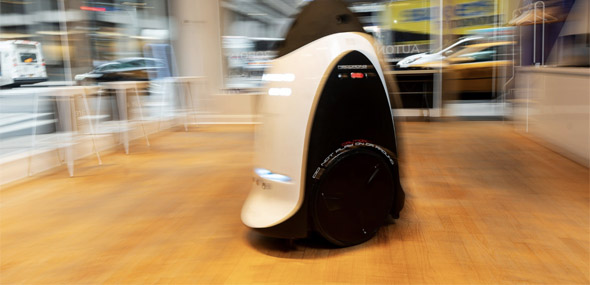Why do we hurt robots?
They are like us, but unlike us, and both fearsome and easy to bully.

“We see ourselves in the mirror of the machines that we can build.”
— Frédéric Kaplan, digital humanities chair at École Polytechnique Fédérale de Lausanne
A hitchhiking robot was beheaded in Philadelphia. A security robot was punched to the ground in Silicon Valley. Another security bot, in San Francisco, was covered in a tarp and smeared with barbecue sauce.
Why do people lash out at robots, particularly those that are built to resemble humans? It’s a global phenomenon. In a mall in Osaka, Japan, three boys beat a humanoid robot with all their strength. In Moscow, a man attacked a teaching robot named Alantim with a baseball bat, kicking it to the ground, while the robot pleaded for help.
Why do we act this way? Are we secretly terrified that robots will take our jobs? Upend our societies? Control our every move with their ever-expanding capabilities and air of quiet malice?
Quite possibly. The specter of insurrection is embedded in the word “robot” itself. It was first used to refer to automatons by the Czech playwright, Karel Capek, who repurposed a word that had referred to a system of indentured servitude or serfdom. The feudal fear of peasant revolt was transplanted to mechanical servants, and worries of a robot uprising have lingered ever since.
More stories about Computing and AI
Suggested links
MIT reshapes itself to shape the future